Fears Lake Torrens mining exploration will be South Australia’s equivalent of Juukan Gorge
A decision to grant a mining exploration licence in the state’s Far North has prompted fears it will become SA’s version of the Juukan Gorge disaster.
SA News
Don't miss out on the headlines from SA News. Followed categories will be added to My News.
Can a premier who is also Aboriginal affairs minister refuse an inquiry sought by Aboriginal people into his state’s native title organisations because he says he respects Aboriginal self-determination, yet then approve exploration of an area his own Aboriginal heritage body has recommended against?
It’s a bob each way on self-determination and it’s at the heart of this month’s decision by South Australian Premier and Minister for Aboriginal Affairs Steven Marshall to grant Argonaut Resources subsidiary Kelaray permission to drill on the western shores of Lake Torrens, 450km north of Adelaide.
It’s a decision some insist is potentially South Australia’s version of last year’s Juukan Gorge destruction by Rio Tinto in Western Australia.
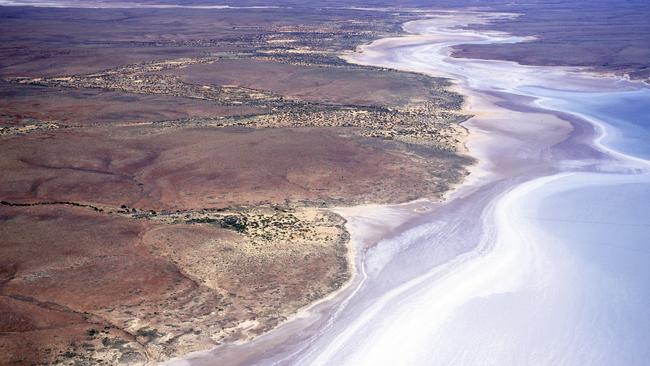
Speaking on condition of anonymity, one of the nation’s most experienced native title lawyers said the decision was complex and had the potential to erupt.
“In some ways Torrens is not directly comparable with Juukan because the destruction of the caves is far more damaging to traditional culture than exploratory drilling at Torrens. Yet in another way, it is far worse,” the lawyer said.
“While it can be argued neither the WA Government nor Rio Tinto properly understood the importance of Juukan ahead of the blasting, the Lake Torrens situation is the opposite.
“The Marshall Government has approved drilling of a site even though it had extensive knowledge from the state’s Aboriginal Heritage Commission warning it of the potential destruction of sacred sites.”
The issue is divisive politically and for local people.
Kuyani woman Regina McKenzie told the ABC in late September “her people had a deep connection with the lake”.
“The Kuyani were the law holders of what anthropologists would call the lake’s culture people,” she said.
Her brother, Malcolm “Tiger” McKenzie, completely disagrees.
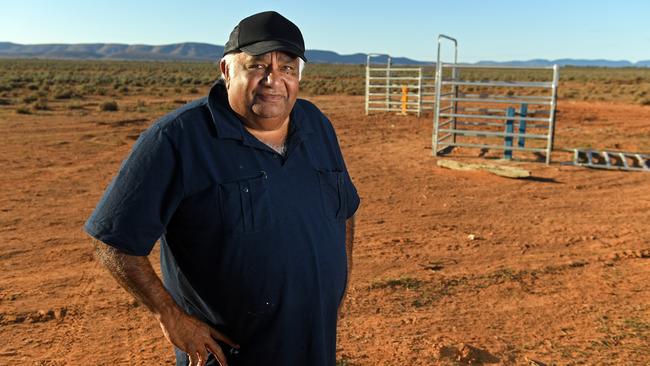
Tiger is unequivocal that cultural issues need to be traded off to maximise economic benefits to local Aboriginal people.
“There’s a lot of people, especially the Greens, that stop Aboriginal people advancing in this country. There are important cultural issues associated with the lake, but without mining how are we going to build the capacity of Aboriginal people to work and to contribute to this country?”
Tiger, 68, lives on the Aboriginal community of Davenport north of Adelaide. He believes concerns about a possible repeat of the Juukan Gorge disaster could be alleviated if people from the various tribal groups associated with the lake could sit down and negotiate with the company and the government.
“That’s what we blackfellas have got to do. Sit down and negotiate. We should not be saying no from the very beginning. Otherwise we are always going to have our arms out for a handout,” he said.
The ABC also quoted Aboriginal Heritage Committee member Glen Wingfield, who would not talk for this story after members of the committee were directly emailed the State Government’s guidelines on public comment by public sector employees.

But Mr Wingfield, heritage services manager with the Kokatha Aboriginal Council, told the ABC that Lake Torrens was an important site for the Kokatha and other aboriginal nations.
Part of the problem for Argonaut is that no specific tribal group has native title over the area to be drilled.
A 2016 native title case in the SA Supreme Court, the Lake Torrens Overlap case, found the previous native title holders, the Kokatha, were not the original inhabitants of the area but had moved there to work on pastoral leases in colonial times.
The Kokatha, Barngarla and Adnyamathanha/Kuyani all had separate claims over the lake but Justice John Mansfield could not find that any of the claimants had clear association with the lake in pre-colonial times.
Former Kokatha chair Chris Larkin, a respected leader who has had a close working relationship with Oz Minerals, the operator of the neighbouring Carapateena copper mine just west of Lake Torrens, has no doubts about the heritage values of the lake, yet is strongly pro-development in other areas.
“This is definitely Marshall’s Juukan Gorge,” Mr Larkin said last week.
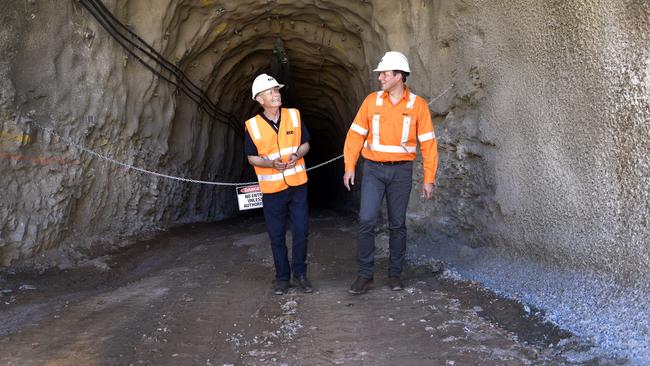
He was sceptical of Argonaut’s promises not to disturb the lake by putting mats down on the lake surface for vehicle access to the drill site and actual drilling.
“As far as protecting the lake’s surface, they reckon they are going to drive out on pads put on to the lake,” he said.
“Now we know after a full moon it’s like the tides. It brings water though the surface. Blackfellas know this. You would sink up to your knees at some times.
“We know that’s what happens because we have been going out pulling animals out of the lake for a very long time. And we certainly weigh less than drilling rigs and trucks.
“All the water from the western side of the Flinders Ranges flows under that lake, and the last time drilling was conducted all they found was sand and water.
“The geological surveys show ore but that is caked over with mud and anything else that has ever eroded from the Flinders.
“For Kokatha people the stories we used to know were about Andamooka Island. This is very distressing for traditional people. You have rights and responsibilities from the place where your mother and your father came from.
“Big camping grounds were on the edge of the lake. No one lived on the lake. Quite apart from that there are endangered bird species that come from other parts of the world to nest by the lake.”
Andrew Thomas, 64, an initiated traditional man, was nominated with Mr Wingfield to meet state Treasury officials to discuss heritage issues at the lake.
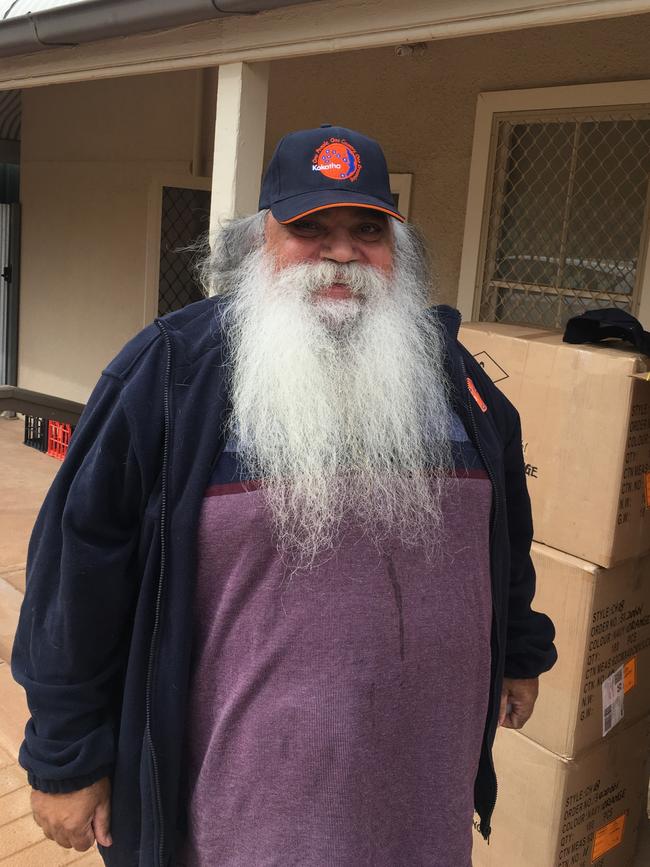
“I was nominated with Glen to outline the case against mining on one part of the lake. Now they have gone ahead and looked at the other section of Lake Torrens which has sacred burial sites on it. We are really very angry that approval has been given,” Mr Thomas said.
“We are talking about burial sites that have been there for thousands of years. If we started digging up graves around Adelaide there would be a big hullabaloo. The dreaming associated with Lake Torrens runs right through the state of South Australia.”
Mr Thomas refused to elaborate on particular dream time stories: “I would not say more unless you were a law man.”
Mr Thomas is connected by birth to the best anthropological justification the State Government has for its decision to give the green light for exploration under Section 23 of the state’s Heritage Act.
He is the nephew of Max Thomas, a Kokatha traditional man who was part of the 1981 anthropological expedition that first tried to map out heritage areas on the Olympic Dam-Ranger-Lake Torrens area.
The report of that expedition, led by Canadian anthropologist Daniel Vachon, includes much sensitive information and is not readily available but has been obtained by The Advertiser. Vachon’s report was central to Justice Mansfield’s 2016 finding in the Overlap case.
Paragraph 719 of Justice Mansfield’s decision says: “An initiated Western Desert anthropologist, Daniel Vachon, … did not expose any Kokatha or Western Desert stories relating to Lake Torrens itself.

“He remarked that ‘mythological knowledge is worse than thin, it is non-existent in these informants. The men themselves know that others will need to be involved if the myths are to be relearned’.”
Justice Mansfield made similar observations about stories from other tribal groups. In essence, the court found no living people had direct knowledge of the area’s cultural heritage.
The Vachon report is specific.
“Since the songs and place names are not known, there are no ‘ethnographic sites’ to protect,” it states.
“Without the place names, it becomes almost impossible (but not entirely) to elicit information on the area from others. This is not to say no-one knows the country. But unless a process of relearning begins immediately, whatever knowledge of the area remains will be lost within the next few years.
“These men know that the situation is desperate, but have little confidence that the younger people share their enthusiasm. In truth, only Richard Reid and, maybe, Max Thomas are serious in relearning their heritage. Both are willing to consider having white people who know anything teach them about the country.”
And indeed Max did relearn and did pass his knowledge to nephew Andrew, who is regarded as a good and honest man by all parties to the mining debate.
Mark Koolmatrie is head of the Aboriginal Heritage Committee and a spokesman for South Australia’s self-styled Native Title Reform Group, a loose affiliation of lawyers, anthropologists, former mining executives and experienced aboriginal leaders who think the state’s native title and heritage regimes could work better.
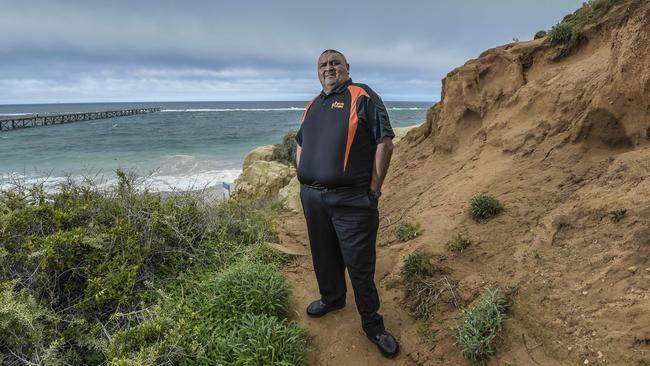
He regards Mr Marshall as a friend even though his report recommended strongly against the exploration approval.
Mr Koolmatrie, a Ngarrindjeri man who operates tourism businesses in the state’s south, would only say of the approval: “The Premier says he won’t support a royal commission into the operation of native title in this state because he supports aboriginal self-determination.
“Yet when presented with a heritage report by aboriginal people recommending against mining exploration he no longer accepts that self-determination.”
For its part, Argonaut is treading warily and CEO Lindsay Owler, acknowledged by all sides as a thoughtful executive who has good relations with government and local Aboriginal communities, saw no benefit in going on the record for this story.
Argonaut wants good relations with local Aboriginal people and is willing to pay royalties to any group that should eventually secure native title.
Argonaut’s Kelaray sent a draft Native Title Agreement to the Kokatha in October 2019. A royalty framework agreement and proposed heritage arrangements were sent to the Adnyamathanha, including the Kuyani subgroup that may make its own claim for the area, and the Barngarla in late 2016. None of Argonaut’s draft agreements have been executed.
Professor Peter Sutton, anthropologist with the South Australian Museum, was already working in the Olympic Dam area when Mr Vachon’s trip took place.
He gave evidence in the Overlap case that the Kuyani had the strongest connection to the Lake Torrens area.
Interested readers can find an excellent discussion by Prof Sutton published by the Griffith Review in 2017.
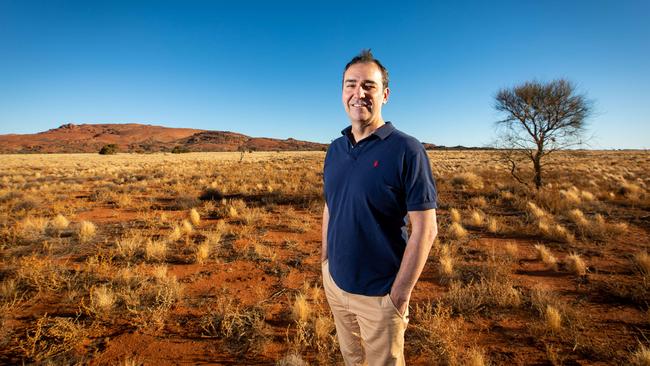
As in all things native title since the original Wik Ten Point plan devised by then-prime minister John Howard in 1998, negotiated local agreements are the best way forward.
With that in mind, Mr Koolmatrie hopes Mr Marshall’s indication last year that he may be prepared to look at some form of parliamentary inquiry will proceed by mid-2021.
Andrew Thomas says Mr Marshall should “be meeting with the Kokatha law and culture committee regularly”.
The complexity of the anthropological evidence considered by Justice Mansfield suggests to reform group members that the path of legal action is not the best way forward for aboriginal native title holders and those without title who nevertheless have legally recognised cultural connections with proposed mining sites.
Mr Koolmatrie has conducted several illuminating interviews on the reform association’s Facebook page with leaders of the mining industry in Africa and North America.
All advocate closer relationships between miners and Indigenous communities and legally enforceable trust arrangements to make sure the benefits of mining do flow to local communities.
One of the country’s most experienced native title lawyers, Raelene Webb QC, is a former president of the National Native Title Tribunal from 2013-18.
Speaking at Adelaide University in 2018 she said: “With the spectre of complex, lengthy and expensive native title compensation claims to come governments should consider non-litigated ways to compensate native title claimants.”
She said the journey to native title was “disruptive for Indigenous groups required to establish their adherence to traditional laws and customs in order to succeed”.
In the Lake Torrens matter that process would be complicated by the state’s history of mining approvals in the area.
A spokesman for Mr Marshall said records indicated the first exploration hole at the lake was drilled in 1960 and 282 exploration licences had been granted over the area since the 1970s.
As well, “previous Section 23 authorisations had been approved in 2010 and 2018 by the former Labor Government”.
The spokesman said any proposed mining would mean “a separate Section 23 authorisation would have to be sought by Kelaray”.
The Marshall Government could lose a lot of political skin pleasing neither side, whatever the anthropological justifications for the Premier’s latest decision.
An inquiry and a new, more co-operative approach could benefit miners and aboriginal groups while minimising political damage.
A good place to start might be splitting Mr Marshall’s portfolio responsibilities.
Many people spoken to for this story believe it is inappropriate that a Premier with power to override aboriginal heritage recommendations is also Minister for Aboriginal Affairs.
Nor is there much support for the Opposition. The most recent drilling at Lake Torrens was approved three years ago by the-then ALP minister for Aboriginal affairs Kyam Maher, who told ABC radio this week that he now believes Mr Marshall’s decision went much further than his own.
The present Aboriginal Heritage Act was introduced by Mr Maher in 2016.
Greens Upper House MLC and Aboriginal affairs spokeswoman Tammy Franks said in response to Maher’s comments: “We rushed through the Aboriginal Heritage Act in the first place in 2016. It didn’t have the support of the Aboriginal Legal Rights Movement or the SA native title services at the time.
“We didn’t even wait for Law Society advice. It was rammed through the Parliament and they got it wrong.
“I will be moving to open up the Aboriginal Heritage Act when Parliament resumes in the first week of February. I would hope that Labor would be willing to have a respectful conversation that actually listens to aboriginal voices.”
This issue will only get politically hotter. Lake Torrens is not Juukan Gorge, but activists are keen to make it seem so.



